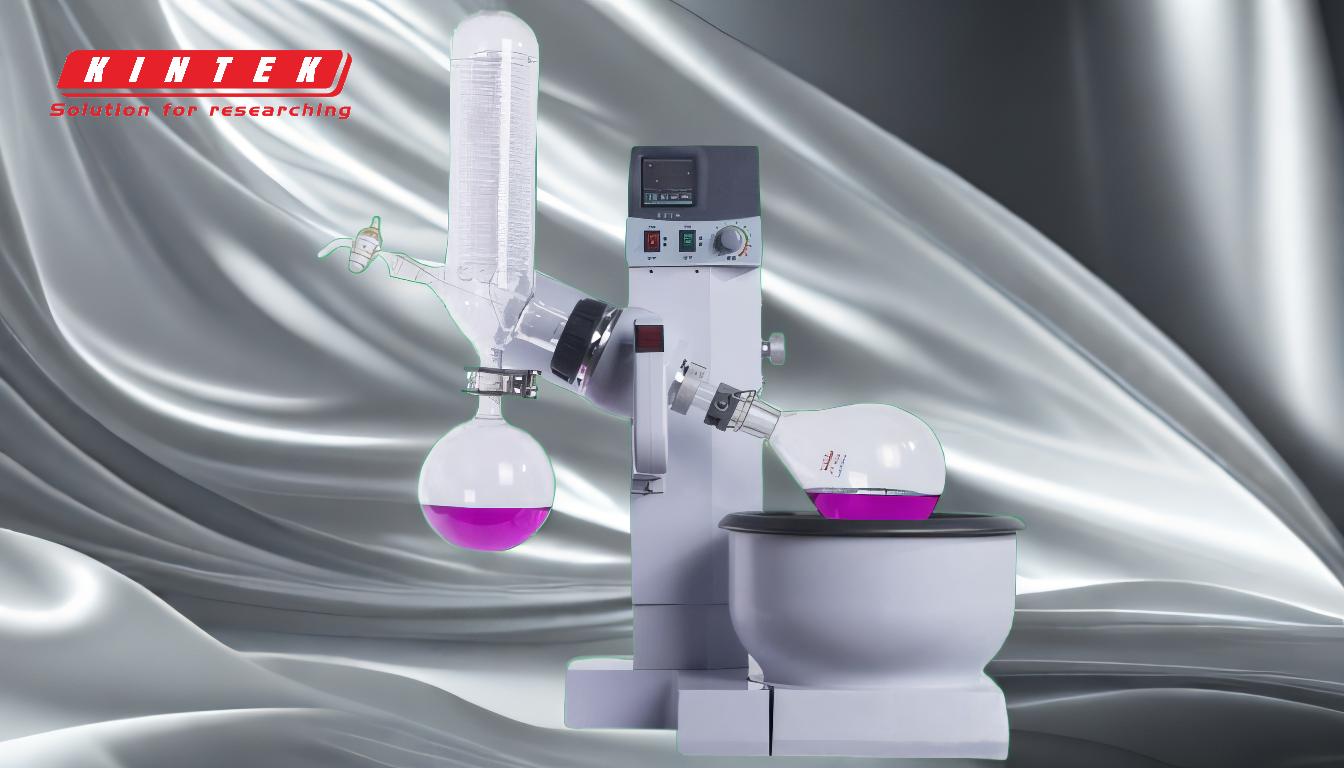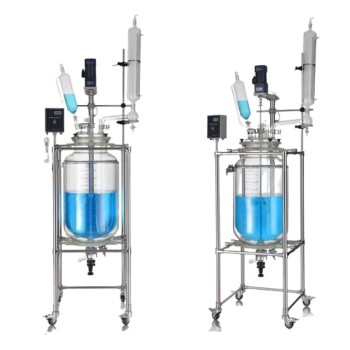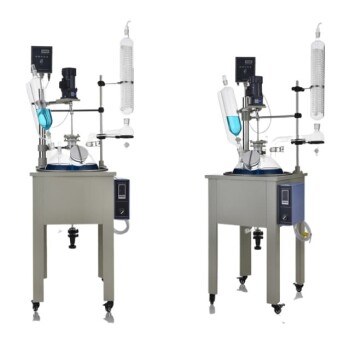A rotary evaporator (rotovap) is a versatile laboratory device used for the gentle and efficient removal of solvents from samples through evaporation. Its volume can vary significantly depending on its intended use, ranging from small-scale laboratory models to larger pilot plant systems. For instance, pilot plant rotary evaporators typically have a volume of 50L, while smaller lab models may have much smaller capacities. The rotovap is widely used in industries such as pharmaceuticals, biopharmaceuticals, chemical research, and even molecular gastronomy for tasks like solvent removal, concentration, crystallization, and distillation. Its design allows for precise control over temperature and pressure, ensuring the preservation of the original essence of the solution.
Key Points Explained:

-
Definition and Function of a Rotary Evaporator:
- A rotary evaporator (rotovap) is a device designed to remove solvents from samples through evaporation under reduced pressure.
- It is used in various industries, including pharmaceuticals, chemical research, and molecular gastronomy, for tasks such as solvent removal, concentration, and distillation.
-
Volume Variability:
- The volume of a rotary evaporator can vary widely depending on its application.
- Pilot plant rotary evaporators, typically used for larger-scale operations, have a volume of around 50L.
- Smaller laboratory models may have significantly smaller capacities, tailored to the specific needs of the experiment or process.
-
Applications of Rotary Evaporators:
- Solvent Removal: Efficiently removes solvents from chemical mixtures, particularly low-boiling solvents.
- Concentration: Used to concentrate trace components in solutions.
- Crystallization: Assists in the crystallization process by evaporating solvents.
- Distillation: Separates volatile components in mixtures, such as concentrating flavors or removing unwanted odors and tastes.
- Molecular Gastronomy: Used in restaurants and bars to distill solvents or concentrate food essences.
-
Working Principle:
- The process involves adding a solution to a starting flask and preparing a water bath at a controlled temperature.
- A vacuum pump creates reduced pressure, causing the solution to evaporate.
- The evaporated gases travel to a condenser chamber, where they are chilled back into liquid form and collected in a receiving flask.
- This method avoids oxidation and preserves the original essence of the solution.
-
Advantages of Using a Rotary Evaporator:
- Gentle Evaporation: Operates under reduced pressure and controlled temperature, minimizing the risk of thermal degradation.
- Efficiency: Allows for rapid evaporation of large amounts of solvents.
- Versatility: Suitable for a wide range of applications, from laboratory research to industrial-scale processes.
- Precision: Offers precise control over the evaporation process, ensuring consistent results.
-
Considerations for Equipment Purchasers:
- Volume Requirements: Determine the appropriate volume based on the scale of operations (e.g., pilot plant vs. laboratory use).
- Application Needs: Consider the specific tasks the rotovap will be used for, such as solvent removal, concentration, or distillation.
- Temperature and Pressure Control: Ensure the equipment offers precise control over these parameters for optimal performance.
- Durability and Maintenance: Evaluate the build quality and ease of maintenance to ensure long-term reliability.
By understanding these key points, purchasers can make informed decisions when selecting a rotary evaporator that best meets their specific needs and applications.
Summary Table:
| Key Aspect | Details |
|---|---|
| Definition | A device for solvent removal through evaporation under reduced pressure. |
| Volume Variability | Ranges from small lab models to 50L pilot plant systems. |
| Applications | Solvent removal, concentration, crystallization, distillation, and more. |
| Working Principle | Evaporation under vacuum, condensation, and collection of solvents. |
| Advantages | Gentle evaporation, efficiency, versatility, and precision. |
| Purchasing Considerations | Volume, application needs, temperature/pressure control, and durability. |
Ready to enhance your lab's efficiency? Contact us today to find the perfect rotary evaporator for your needs!










